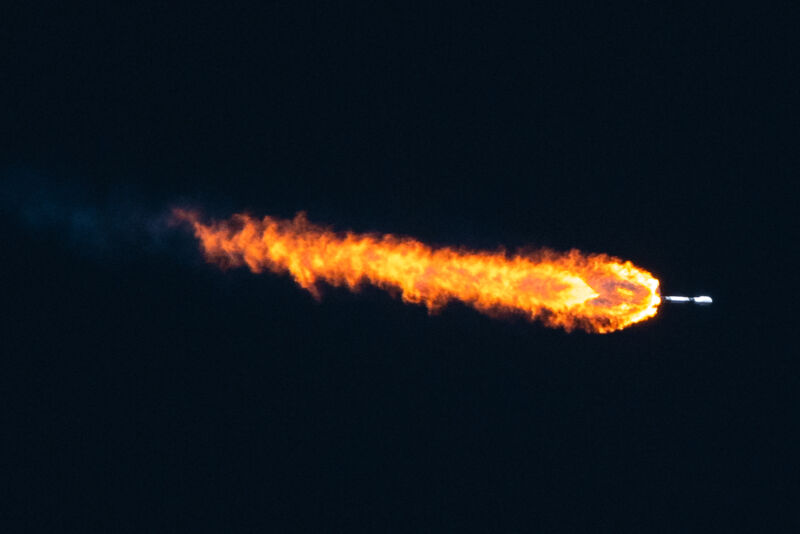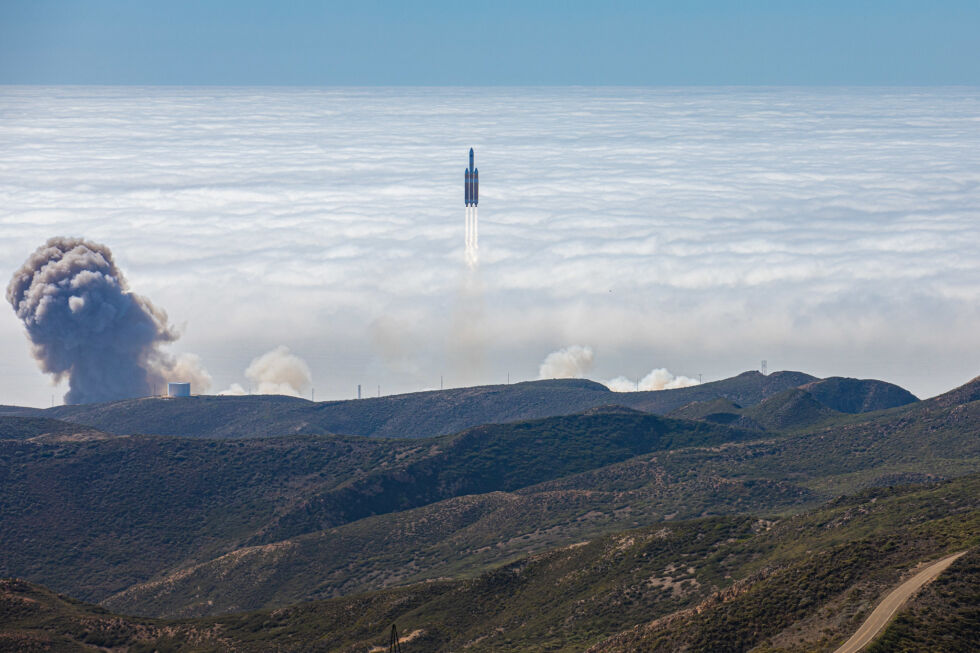
A decade ago, only a handful of launch companies existed in the US; United Launch Alliance was the big dog, with SpaceX starting to nip at its heels. Since then, however, a multiplicity of new launch startups have arrived in the United States, many of which developed their own rocket engines. As a result, we are now in the golden age of rocketry, with many different startups and approaches to pushing payloads into space.
In my weekly Rocket Report newsletter, I pay attention to launch companies and state-owned enterprises around the world. But it can be difficult to measure Europe-based Arianespace against SpaceX against China’s vast state-owned launch providers. Therefore, for this list, we’re going to focus solely on commercial launch companies in the United States.
Please note this is a subjective list, although hard metrics such as total launches, tonnage to orbit, success rate, and more were all important factors in the decision. Also, the focus is on what each company accomplished in 2022, not what they might do in the future.
No. 1: SpaceX
Was there any doubt? This year, the California-based launch company will launch 60 rockets, with (as of this writing) 100 percent mission success. More than 90 percent of these launches have taken place on previously flown first stages and the majority with reused payload fairings. In mid-December, SpaceX also pushed to 15 the number of times a single first stage has flown. The company does not appear to have found the upper limit yet on first-stage reuse.
Thanks to its aggressive efforts to develop, test, and prove the capability to reuse Falcon 9 first stages, SpaceX was able to dramatically increase its launch capacity this year at a critical juncture. When Russia invaded Ukraine, Western access to the Russian Soyuz rocket ended. SpaceX was able to scale up its launch cadence accordingly, helping OneWeb, the European Space Agency, and others with launch needs that resulted from the war.
If there was a downside for SpaceX in 2022, it came from ongoing delays with the Starship and Super Heavy rocket, which did not launch this year. Some of this can be attributed to SpaceX taking a more cautious approach toward testing. With a large amount of valuable infrastructure built up at its Starbase launch site in South Texas, SpaceX does not want to take unnecessary risks.
No. 2: United Launch Alliance
The Colorado-based rocket builder had a good year in 2022, with seven Atlas V launches and one Delta IV Heavy mission. While this cadence pales in comparison to SpaceX—to equal SpaceX’s total of 60 launches in 2022, ULA would have to count up every one of its launches since the spring of 2015—the company continued its record of 100 percent mission success. In this sense, it remains a rock-solid alternative to SpaceX for the Department of Defense, which has prioritized redundancy in access to space.
It was a disappointment (but for readers of Ars, not a surprise) that ULA’s new Vulcan rocket did not launch in 2022. However, the company did finally take delivery of a pair of BE-4 flight engines from Blue Origin this fall, and ULA is on course to attempt a debut launch of the large rocket during the first half of 2023. More importantly, the future viability of this rocket seems assured after Amazon’s monster order of 38 Kuiper launches on the Vulcan rocket. This should allow ULA to negotiate discounts for large purchases of materials and supplies, and amortizing fixed costs across more launches makes Vulcan’s price more competitive.
In 2022, ULA solidified its future for years to come.

No. 3: Rocket Lab
Rocket Lab had the best year in its history in 2022. Its previous record for successful launches was six, and this year it concluded nine flights. More importantly, after Electron launch failures in 2020 and 2021, the company needed to prove the reliability of its small launch vehicle. All nine of its launches this year were successful. In addition, with the CAPSTONE mission, Rocket Lab launched its first deep space mission, a huge milestone. The company is also set to fly Electron from US soil for the first time, but poor weather conditions delayed a launch attempt until January 2023.
The company also continued to make progress with its efforts to reuse the Electron first stage, including two attempts to capture a first stage using a helicopter. Rocket Lab has yet to successfully complete such an air capture, but it is learning valuable lessons about the use and reuse of launch hardware that will feed into its development of its medium-lift launch vehicle, Neutron. The company’s spacecraft and in-space components business has also become a financial success, helping to support development of its launch business.
No. 4: Northrop Grumman
After the “big three” of US launch companies, the rankings start to become less clear-cut. However, Northrop Grumman deserves the fourth spot because its Antares rocket did launch successfully twice in 2022, delivering two Cygnus spacecraft to orbit. Cygnus took on added importance in 2022, because, in case of an emergency, it is presently the only US vehicle capable of boosting the altitude of the International Space Station.
However, Russia’s invasion of Ukraine posed serious problems for the company. The current configuration of the Antares rocket uses RD-181 engines made in Russia, and the first stage is manufactured in Ukraine. Accordingly, the final Antares 230 rocket will launch in the spring of 2023, after which time Northrop had to buy three Falcon 9 launches from SpaceX to put its Cygnus spacecraft into orbit. The first of these launches should come in 2023. Separately, Northrop announced an agreement to buy Miranda rocket engines from Firefly to power an Antares 330 rocket. With luck, this booster will make its debut in late 2024.
The company’s other rocket, Pegasus, last launched in June 2021. It is not clear whether it will ever fly again.
No. 5: Virgin Orbit
The California-based air-launch company flew two of its LauncherOne rockets in 2022, both successful. After launching a mission for the Department of Defense in January, it seemed like Virgin Orbit was ready to take a step forward in annual cadence, but the company only managed to match its prior record of two launches, first established in 2021. Part of the reason is that the company spent a lot of time and effort getting regulatory approval for a debut launch from Cornwall, England—the Cosmic Girl aircraft will take off from there with rocket launches over the sea. This mission is now planned for early 2023.
While Virgin Orbit’s technical execution has been excellent, questions continue to swirl about the financial viability of the company’s business. Virgin Orbit announced on the evening before Thanksgiving the “cessation” of a securities offering, saying, “Due to current market conditions, the company has elected not to proceed with an offering. Any future capital-raising transactions will depend upon future market conditions.” Previously, in October, Virgin Orbit CEO Dan Hart said the company was seeking to raise additional capital after going public as a special purpose acquisition company or SPAC. In the near term, the company has plenty of liquidity, but in the longer term it will need to substantially increase its launch cadence to reach profitability.
https://arstechnica.com/?p=1905568

